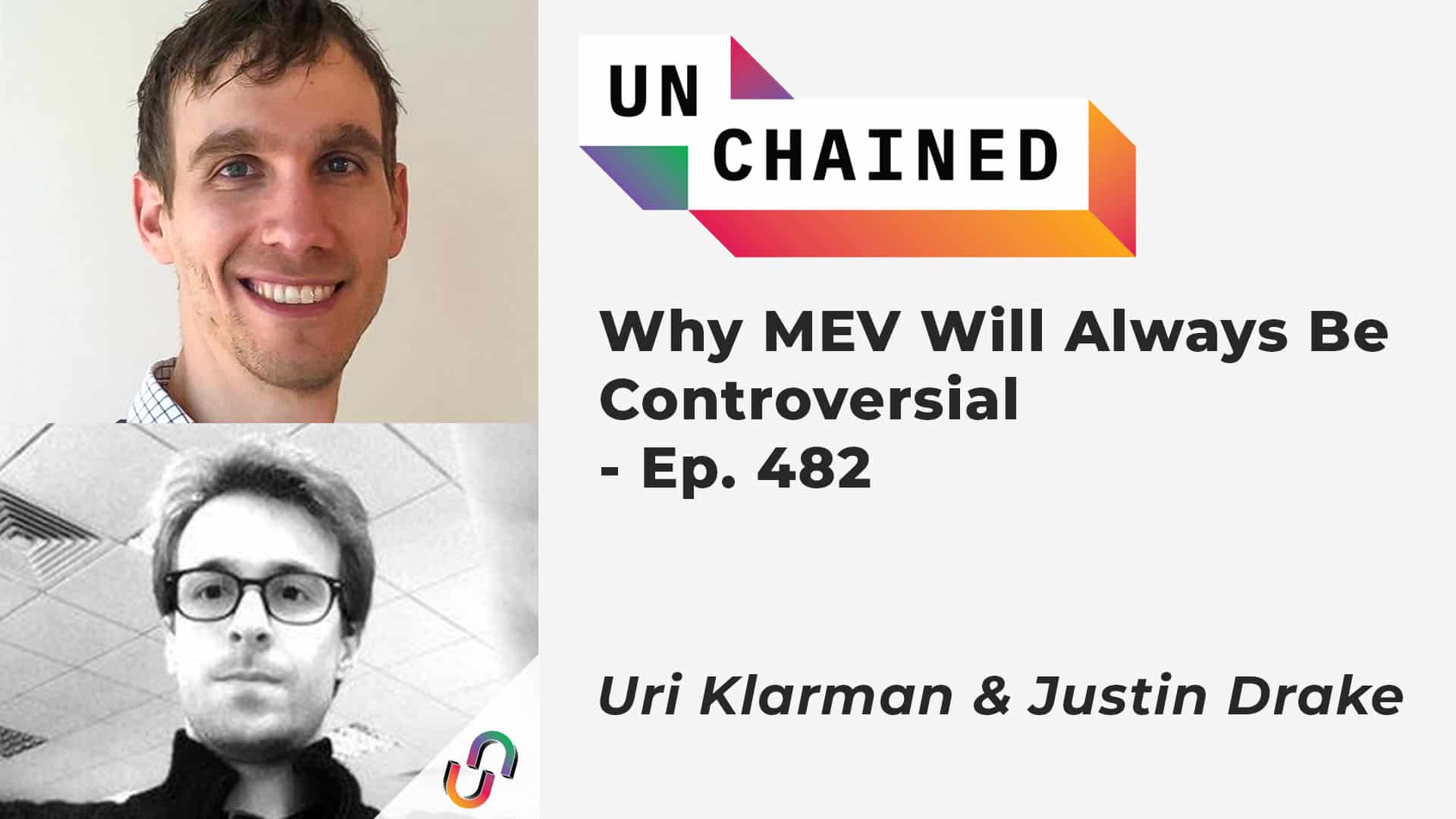Maximal extractable value, or MEV, is a mainstay of the Ethereum landscape. But the process of validators reaping profits from handling new blocks is not without controversy. Ethereum Foundation researcher Justin Drake and bloXroute Labs CEO Uri Klarman assess the current state of MEV. Hear them disagree about the path forward for making Ethereum fairer for all its economic actors.
Listen to the episode on Apple Podcasts, Spotify, Overcast, Podcast Addict, Pocket Casts, Stitcher, Castbox, Google Podcasts, TuneIn, Amazon Music, or on your favorite podcast platform.
Show highlights:
- what MEV is and how it has evolved over time
- the nuances of the newly proposed MEV Blocker and why it’s important for users
- whether it’s possible to enable “back-running” while preventing front-running
- how to give power back to blockchain users
- what the differences and similarities are among several projects trying to solve MEV
- how “MEV Burn” will be like the EIP-1559 to what Justin calls contention
- whether EigenLayer can help solve MEV problems
- whether wallets and DEXs could be doing something different to prevent MEV and generate more revenue
- how “exclusive order flow” could be detrimental to DeFi users
- what proposer-builder separation (PBS) is and whether it will change MEV distribution
- why Uri doesn’t think PBS is the right step forward for Ethereum
Thank you to our sponsors!
Guests:
- Justin Drake, researcher at the Ethereum Foundation
- Uri Klarman, CEO of bloXroute Labs
Links
- Previous coverage of Unchained on MEV:
MEV Blocker
- CoinDesk: MEV Blocker Wants to Help You Outrun the Front-Runners
- MEV Blocker
- Unchained: Ethereum Builders Join Forces to Launch MEV Blocker
MEV Distribution
- CoinDesk: Flashbots Proposes New Class of ‘Matchmakers’ to Share MEV Gains With Ethereum Users
- MEV-Share: programmably private orderflow to share MEV with users – The Flashbots Ship
- BackRunMe
- Wallet-Boost Design Doc · blocknative discourse · Discussion #1 · GitHub
- OpenMEV Mechanics and Formulas – Manifold Finance
MEV Smoothing
MEV Burn
Proposer-Builder separation
- Proposer-builder separation | ethereum.org
- Vitalik Buterin’s tweet




